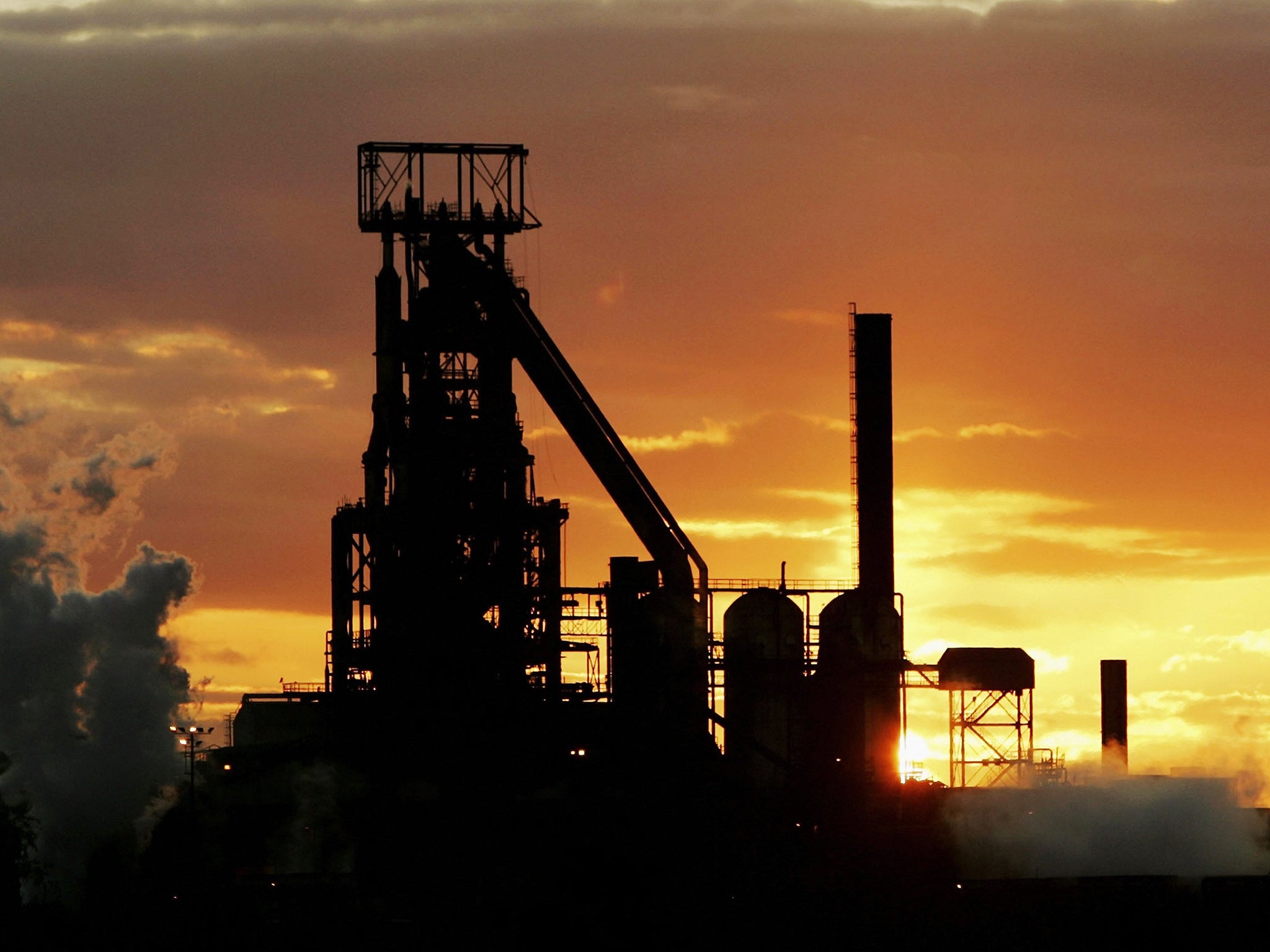Cameron needs a deal for Port Talbot. If he can't protect jobs, Welsh voters will punish him at the EU referendum
Wales has always been regarded as pro-EU, and the country is a net beneficiary from the union. But that could be turned upside down over the steel crisis


Could the Government’s handling of the steel crisis cost David Cameron his job? The question is being asked by politicians in Wales, who feel a backlash against the established parties and the EU as they campaign for next month’s Welsh Assembly elections.
If Wales voted to leave the EU in the June referendum, that could tip the scales in favour of Brexit and Cameron would be calling the removal men to Downing Street much sooner than he would wish. Although he insists he would not resign if he loses, Conservative MPs cannot imagine they would allow the leader of the In campaign to lead the negotiations on our exit terms. They would want it done by an Outer.
No wonder ministers want to keep Tata Steel’s Port Talbot plant alive until 23 June – one unstated reason why Sajid Javid, the Business Secretary, urged Tata bosses during his talks in Mumbai on Wednesday to allow more time for a buyer to be found. But the timetable is not under the Government’s control. Opinion polls already point to a very close referendum.
Now events in Wales could make life even harder for the Remain camp. “There is real anger on the doorstep,” said one Labour source in Wales. “A lot of it is directed at the EU, as well as the Tories for their woeful response to Tata’s announcement”. A Liberal Democrat activist said: “The EU and all the established parties are getting the blame.”
That is not surprising when campaigners for Brexit cynically exploit the steel crisis. Boris Johnson got big headlines this week by claiming that EU membership leaves us powerless to help the steel workers, citing rules limiting state aid and tariffs. “We can’t take emergency action against dumped Chinese steel, even with British industry on its knees, ” he argued. It is funny how free-marketeers who champion free trade deals come over all protectionist when it suits them.
Superficially, the Leave campaign’s message on steel is plausible. EU state aid rules could make it hard for the UK Government to ease the burden of Tata’s pension fund on a new owner. The EU has been slow to act against Chinese imports. “Brussels” is a very convenient scapegoat across Europe. Mainstream parties lose support as those to their left and right play on the genuine grievances of people left behind by globalisation and the financial crisis.
But blaming the EU for what is happening in South Wales does not stack up. Although Tata’s decision was brought to a head by losses of £1m a day, the company is also said to be worried about the prospect of Brexit. Why? More than half of Britain’s steel exports to go the EU. Brexit could mean crippling tariffs and the loss of EU-wide unfair competition measures against Chinese steel; 16 of the 37 currently in place cover Chinese products.
Outside the EU, British steel could be hit by the same anti-dumping moves. We would not with one bound be free to bail it out: World Trade Organisation rules also limit state aid, as Switzerland and Norway have discovered.
Stephen Kinnock, whose Aberavon constituency includes Port Talbot, is also a prominent figure in the Britain Stronger in Europe campaign. He is trying to counter the Leave campaign’s attack, insisting: “The men and women working in the steel industry know that leaving Europe would be a killer blow for British steel.”
But it is an uphill struggle. Leave campaigners pump out leaflets about the EU’s threat to steel jobs. The turmoil is a gift to Ukip, which was already set to make gains in the Welsh Assembly elections. It could now be the only party that advances next month – bad news for Labour, the Tories, the Lib Dems and Plaid Cymru. Yet the biggest impact could be felt in the referendum seven weeks later.
Wales has always been regarded as pro-EU, and with reason. The latest House of Commons Library figures show that Wales gets £163 of EU funding per head per year in farm subsidies and aid to poor regions – more than Scotland’s £118. Wales and Northern Ireland are net beneficiaries from the EU, while England and Scotland pay in more in budget contributions than they get back.
Although polls have normally shown a majority of Welsh people in favour of Remain, that could now turn upside down. Cameron has every incentive to preserve as many as possible of the 4,000 jobs in Port Talbot, because his own is on the line too.
To make matters worse, the explosive Panama Papers, bound to reinforce the Tories’ image as the party of the rich, may encourage voters to give a kicking to the man heading the Remain campaign. That’s what disillusioned voters do in referendums – and why it is so dangerous to call them. However unfairly, the Prime Minister has been caught up in the tax avoidance scandal; some mud sticks. As they fight for their jobs, the steelworkers campaign under the banner “SOS – Save Our Steel”. They are not the only ones who need to send an SOS signal. Cameron does too.


Join our commenting forum
Join thought-provoking conversations, follow other Independent readers and see their replies